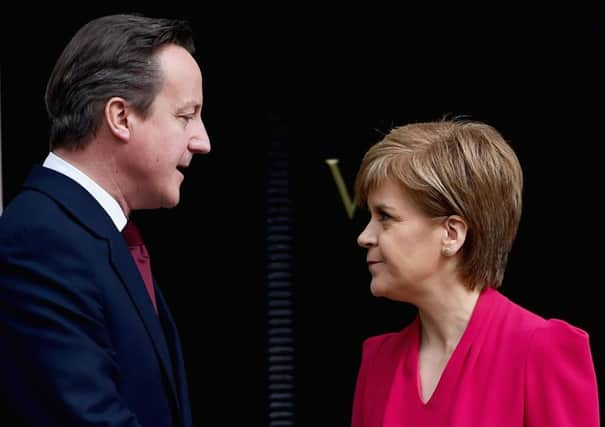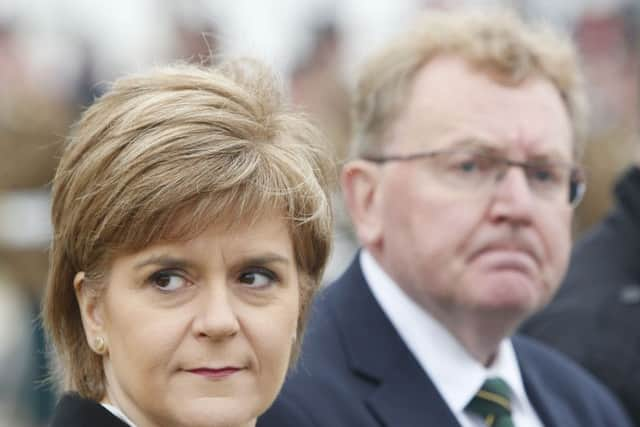New powers ‘fall short in every area’ - Sturgeon


The First Minister insisted that the measures in the Scotland Bill published at Westminster today do not live up to the proposals of the original Smith Commission recommendations on more powers for Holyrood after the referendum No vote.
Ms Sturgeon said MSPs would be unable to scrap the bedroom tax without Westminster’s permission because UK ministers would hold up to eight vetoes under the terms of the bill.
Advertisement
Hide AdAdvertisement
Hide AdThe SNP leader called on all parties at Holyrood to mount a campaign for an enhanced package at First Minister Questions.


“The UK government had a very clear test today to deliver a bill which lived up in spirit and in letter to the Smith Commission,” she said.
“From my glance at it, I think it falls short in almost every area.
“The bill, for example, does not contain the full welfare powers recommended by the Smith Commission.
“And in some key powers it retains – unbelievably given the amount of concern that was expressed about this – a veto for the UK government on key policy areas.
“For example if this Parliament wants to abolish the bedroom tax as I hope we do, the UK government would still have a right of veto over whether we could do it.
“I’m sorry but that is not devolution and I hope all parties will support us and indeed the recommendations of the all party devolution (further powers) committee as we seek to get a Scotland Bill that really does live up to and deliver the Smith recommendations.”
The Scottish Government said the bill continues the veto over changes to universal credit and continues the restrictions on who the Scottish Government would be able to pay carers’ benefits to. It also does not go far enough on the employment support services being devolved and there is no explicit power to create new benefits in devolved areas, the Scottish Government claims.
Advertisement
Hide AdAdvertisement
Hide AdScottish Secretary David Mundell presented the legislation to the UK Parliament today – one of the first two bills since the election.
He insisted it meant “the Vow” by Prime Minister David Cameron, former Labour leader Ed Miliband and former Liberal Democrat leader Nick Clegg in the run-up to the referendum has been delivered.
The package of new powers will enable the Scottish Parliament to set the thresholds and rates of income tax in Scotland and keep all the money raised in Scotland. It will also provide the Scottish Parliament with the first ten percentage points of VAT revenue raised in Scotland.
Air passenger duty and the aggregates levy will also be devolved to the Scottish Parliament as well as control over £2.5 billion worth of new welfare powers.
Mr Mundell said: “The government has moved quickly on day one of the new Parliament to deliver on our commitment to make Holyrood one of the most powerful devolved parliaments in the world.
“Scotland will still hold on to the benefits of being part of the UK that people voted for in the referendum last September.
“Sharing risks and resources with the rest of the UK is good for everyone in the UK when it comes to vital matters such as pensions, currency, trade and national security.”
The Scotland Office also rejected Ms Sturgeon’s claims the UK government would be left with a “veto” over the new powers being handed to Holyrood.
Advertisement
Hide AdAdvertisement
Hide Ad“It is factually wrong to claim there are vetoes in the bill,” a spokesman said.
“These are sensible, practical arrangements to ensure the transfer of new powers smoothly. This is reciprocal – in a number of areas of the bill, UK government ministers must also consult Scottish Government ministers in taking decisions.”